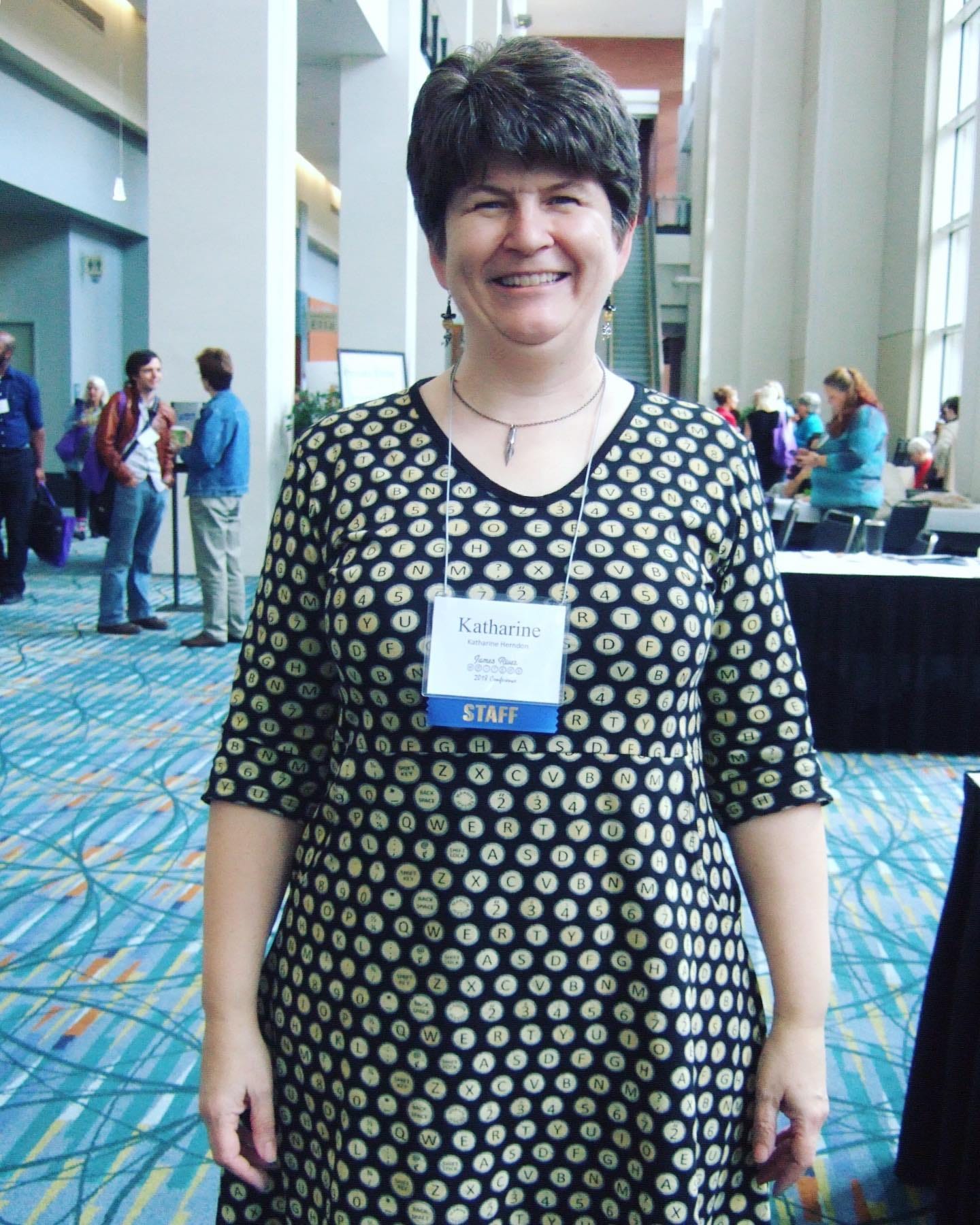Lessons from the Zombie Apocalypse
As my supervisor, Katharine modeled empathy, affirmation, and appreciation and at the same time, taught me why understanding the walking dead matters.
Although the day started out sunny and beautiful in Provincetown, clouds crept in by noon, and by evening, as the sun set over the water and news of the day spread like storm clouds, no one remembered sunshine or beauty or even the colors of the sunset.
Two months before, when I announced my resignation from my position as LGBTQ and Multicultural Ministries Director with the Unitarian Universalist Association, I took another job—a part-time program director position with James River Writers (JRW), a well-respected writing organization in Richmond, Virginia. In many ways, it was a dream come true. I’d get to work with writers, focus my energy on the literary world, and use my skills to help build a community of writers—all things I knew I’d love doing. This meant, however, that for three months, I would have to juggle both jobs.
When my wife, Wendy, got accepted into a writing workshop with renowned author and poet Marge Piercy in Wellfleet, less than a half hour from Provincetown, I decided to go along so I could do my juggling in a beautiful place while spending time with Wendy when we could squeeze it in. A Sunday in Provincetown seemed like a perfect way to enjoy a day off together in our all-too-busy lives. It didn’t turn out as we expected. And neither did the start of my new job.
Wendy and I arrived in Provincetown early to enjoy a day playing tourist in this LGBTQ-friendly seaside town. As we strolled around taking in the sights, I noticed women, two-by-two, carrying rainbow flags between them as they strode through downtown.
“Why do lesbians have to look so dour when they march?” I joked with Wendy, not really looking for an answer—just sharing an observation. “Why can’t they at least smile when they pass people? Aren’t we supposed to be gay?” We laughed and kept walking.
It didn’t take us long, however, to notice that no one was smiling in Provincetown. And we soon learned why. Earlier that morning, a gunman massacred 49 people and wounded 53 more at Pulse, a gay nightclub in Orlando. Because Wendy and I had agreed to go on a news blackout the night before so we could enjoy the day without the world spoiling our mood, we hadn’t heard about this horrific event. But the news broke through anyway, and our day of fun turned into one of protests and vigils.
When Katharine, my new supervisor and JRW’s Executive Director, heard about the tragedy in Orlando, I didn’t even have to ask. She reached out to me. “I’m so sorry about what happened,” she said. “Take whatever time you need.”
Even though I barely knew Katharine, I could tell by the tone of her voice that she meant that both personally and professionally. Personally, this tragedy devastated Wendy and me, as it did LGBTQ people and allies all over the world. Professionally, it meant I would not be leaving my full-time position quietly.
In a little over a week, an entire community of Unitarian Universalists would come together for our annual General Assembly in Columbus, Ohio. It was my job to make sure that LGBTQ attendees had the emotional and spiritual support they needed to get through this. I knew that would consume all of my time for the next couple of weeks. Katharine’s support meant I could set these priorities without feeling as if I was letting her down.
Read a poem Wendy wrote at the Marge Piercy workshop about the shooting at Pulse: “Weeks before the First Anniversary of Marriage Equality.”
When my full-time job finally wrapped up and I could focus all my energy on my new position, I already appreciated my new supervisor. Although Katharine had ultimate responsibility as Executive Director, she treated me and the membership manager, Phil, as colleagues and collaborators. She encouraged creativity and welcomed my ideas for process improvements along the way. I looked forward to days where laughter flowed at easily as coffee might in other workplaces. I would often return home from a day at the office exhausted and energized at the same time. I must admit, though, that I couldn’t always follow the conversation.
Katharine and Phil regularly exchanged updates about young adult authors, new fantasy books, the latest mythical creatures, publishing contracts, and scandals in the publishing world. Well-connected through the social media platform formerly known as Twitter, they exposed me to a whole new world, especially for this devoted nonfiction enthusiast.
“I don’t know how to tell you this,” I said interrupting their banter one day, “but I don’t really know what a zombie is.”
Katharine looked at me like I had just confessed that I had never seen a book. Phil started to laugh, waiting for Katharine to handle it. When she sufficiently collected herself, all she could utter was, “Wait! What? You don’t?”
“No,” I said. “I’ve heard about them, but I’ve never watched a zombie movie or read a zombie book, so I don’t really know what the big deal is about them.” I knew my admission might mean the end of my credibility with them, but feeling safe with Katharine, I took the chance.
As Katharine patiently explained the use of zombies in fiction, with Phil occasionally chiming in, it all came together. For those of you like me who don’t know and are afraid to ask, as I understand it, and don’t quote me on this, the humans in a zombie story can often survive if they use their heads and apply the appropriate tools (especially fire axes and hunting rifles).
What I came to understand about the attraction to zombies, i.e., the walking dead, is that reading about characters defeating such ghoulish foes helps prepare some readers to cope with terrifying situations by providing a greater sense of control (even if only in their imaginations) or by fostering hope that they could survive. For others, it gives them an outlet for their fear and anxiety, emotions that can feel overwhelming in the wake of horrific acts like the mass shooting at Pulse. And besides that, they’re just fun.
Throughout the rest of my time working with Katharine, zombies served as a metaphor for the things we could survive as long as we used our heads and worked together. Even our sample record in our registration and donor database became Matt Zombia—homage to my education about zombies.
It was these kinds of outrageous conversations, combined with Katharine’s genuine appreciation for my skills and expertise and her respect for me as a person and a professional, that made my four years working for her the most affirming position of my professional career.
I’ve supervised hundreds of people throughout my life and always prided myself on being a good supervisor, but Katherine taught me more about supervision in those four years than I ever learned in workshops or in practice. She modeled for me how important it is to value your employees’ input and ideas every day, to go out of your way to say thank you even when they’re just doing their jobs, to recognize the gifts each employee brings, and when appropriate, to lighten the work with humor.
I left my position with JRW to focus my attention on my passion, the Living Legacy Project, but, thanks to Katharine, I left feeling renewed and ready to embrace a new challenge.
Next post:







I enjoyed the perspective on Zombie’s usefulness!
K is one of my oldest and dearest friends. You nailed it. Feeling safe with Katharine is one of life's greatest blessings.